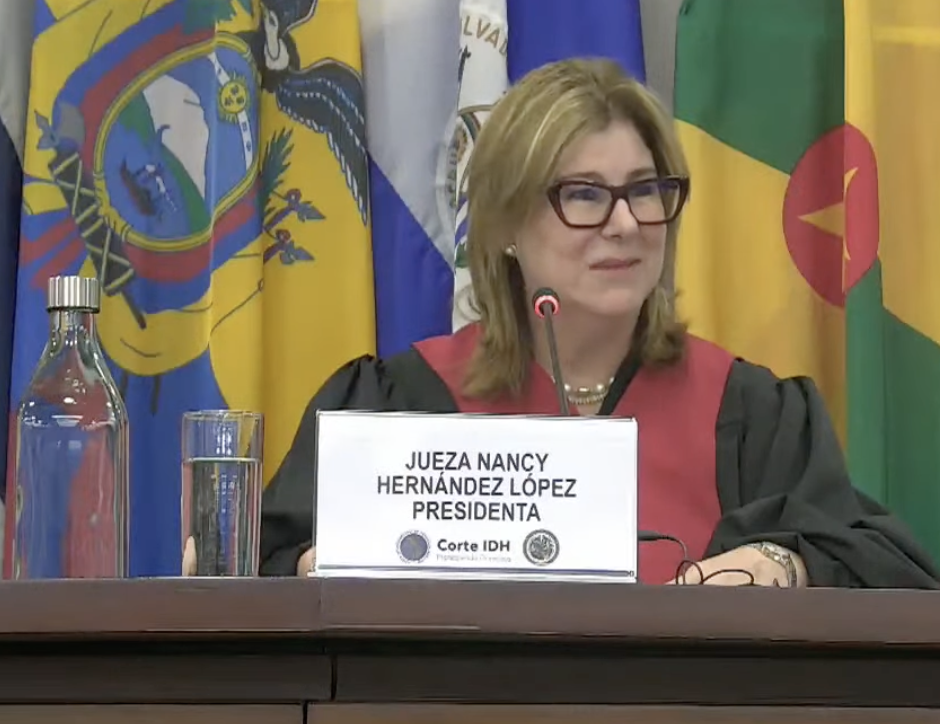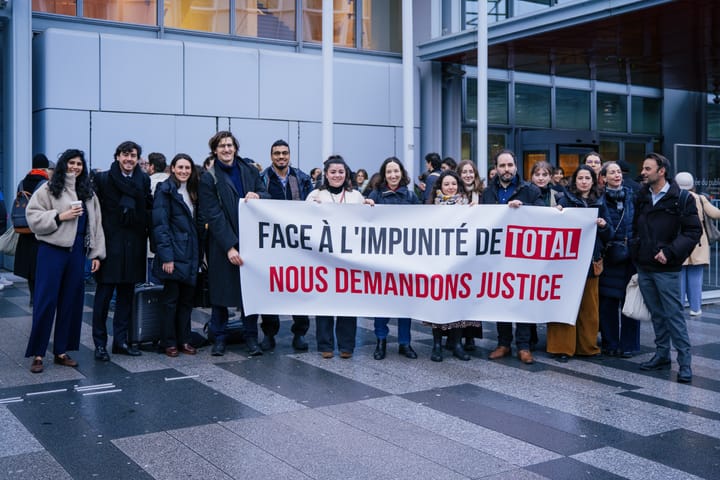Human Rights Court Recognizes Right To A Healthy Climate, Calls For Urgent Action To Address Climate Emergency

The Inter-American Court on Human Rights delivered a highly anticipated advisory opinion today on states’ human rights obligations in the context of the climate emergency, affirming that action to protect the climate system and prevent environmental degradation is a requirement under international law. The court’s opinion recognizes the human right to a healthy climate, and experts say it sets an important precedent that bolsters growing calls for climate accountability and justice.
“The Court has broken new ground and set a powerful precedent in affirming the human right to a healthy climate, the right to remedy and reparation of climate harm, and the absolute legal prohibition on conduct that causes irreversible damage to the environment and the climate on which all life depends,” said Nikki Reisch, climate and energy program director at the Center for International Environmental Law. “Today’s opinion is not just a legal milestone—it’s a blueprint for climate action and climate accountability.”
The opinion stems from a request submitted in January 2023 by Chile and Colombia, seeking the court’s input on a range of questions pertaining to the responsibilities of states to address the climate emergency and remedy harms as a matter of human rights. It is one of several climate change advisory opinions requested from international courts and tribunals that are expected to clarify countries’ legal obligations to act on the urgent climate crisis. Last year the International Tribunal for the Law of the Sea issued a landmark opinion finding that curbing greenhouse gas emissions is a requirement to protect the oceans. The International Court of Justice is slated to hand down a climate advisory opinion later this year, and a request for an advisory opinion on climate change was recently submitted to the African Court on Human and People’s Rights.
The Inter-American Court on Human Rights is a regional human rights court based in Costa Rica that was established under the American Convention on Human Rights, a human rights treaty agreed to by states in the Latin American and Caribbean region (the United States signed onto the treaty but never ratified it). This advisory opinion proceeding marks the first time that the court is addressing the nexus between human rights and climate change. With over 260 written submissions and 185 delegations appearing during oral hearings held last year in Barbados and Brazil, the proceedings also marked the highest level of participation in the court’s history.
During a summary reading of the opinion on July 3, the court’s president Nancy Hernández López noted that the court’s interpretation should be considered by all members of the Organization of American States, which would include the US, since it is relevant to binding legal instruments. Advisory opinions themselves are not binding, but they are considered authoritative interpretations of law, like customary international law and human rights treaties, that are binding.
At the outset, the court emphasized that the world is currently facing a climate emergency. It arrived at this conclusion based on the best available science, including the reports of the Intergovernmental Panel on Climate Change. The climate emergency can only be addressed through urgent action to mitigate and adapt, the court found, and states must use the best available science to inform this action.
The obligation to mitigate greenhouse gas emissions, according to the court, includes duties such as setting and implementing ambitious and enforceable mitigation targets as well as regulating the behavior of companies and enterprises. The court said that states should refrain from any type of behavior that leads to accelerated climate change, and that they are obligated to provide adequate regulation and supervision of businesses. Additionally, the court clarified, for the first time, that states are obligated to adopt measures to counter climate disinformation.
“This opinion sets an important precedent affirming that governments have a legal duty to regulate corporate conduct that drives climate harm,” said Delta Merner, lead scientist with the Science Hub for Climate Litigation at the Union of Concerned Scientists. “As the climate crisis accelerates, the court’s opinion sends a powerful message that nations must act decisively to confront corporate misconduct and protect the public.”
Notably, the court explicitly recognized the existence of the human right to healthy climate system. Courts in the US states of Montana and Hawaii have also recognized such a right, which necessarily includes a stable climate for youth and future generations since they are disproportionately impacted by the worsening climate emergency. The Inter-American Court’s opinion squarely reaffirms the principle of intergenerational equity.
“We celebrate that the court recognizes that the climate crisis has disproportionate impacts,” Mariana Campos, Latin American coordinator with World's Youth for Climate Justice, said during a media briefing on Thursday. “Youth and future generations have a right to a healthy environment, a right to life with dignity.”
The right to a healthy environment and climate, the court noted, includes protection of nature as a subject of rights and gives rise to a duty to not cause irreversible ecological damage. “States should not just refrain from acting in a way that causes significant environmental damage, but they have a positive obligation to adopt measures to guarantee protection, restoration, and regeneration of ecosystems,” the court said.
Additionally, the court said that states “must reinforce the democratic rule of law” and ensure the full exercise of procedural rights, including the rights to science, access to information and public participation, and access to justice. States have a special duty to protect environmental defenders and should take steps to counteract the criminalization of environmental activism and defense.
In concluding her summary reading, López alluded to the urgency of this moment. “We often have hopes that others will do something for us in terms of responsibility towards the planet. But the evidence seen and analyzed in the hearings and all the written submission shows there’s no space to wait.”
Legal experts say the court’s opinion is an historic and “unprecedented” declaration that will have ripple effects far beyond Latin America.
“Judges all over the world considering similar legal questions on climate change now have definitive guidance when it comes to an array of issues such as the rights of future generations and nature,” said Lea Main-Klingst, lawyer at ClientEarth.
“Legal opinions like these bring us one step closer to holding governments to account on climate change in their own national courtrooms – and it’s now up to civil society and legal advocates everywhere to pick up this new tool and use it,” she added.
“This is a wake-up call for governments, fossil fuel industries, and financial institutions,” said Maria Alejandra Vesga Correa, legal officer at Oil Change International. “The era of impunity for climate and environmental harm is ending.”


